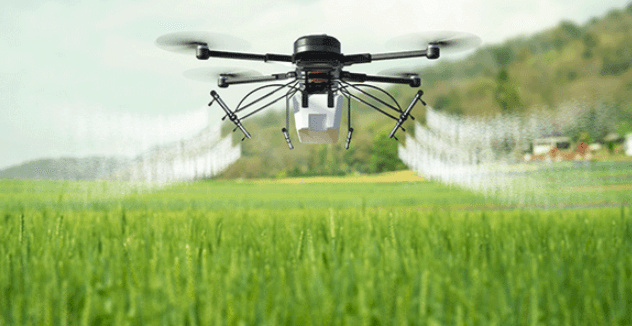Drones are making their way into the agriculture industry. Farmers in Auburn have reported that using drone for spraying crops in Auburn is more efficient. Drones also allow the productivity and sustainability of structures and the environment surrounding or within them.
Understanding Agricultural Drone for Spraying Crops in Auburn
Get an insight into drones precisely. Agricultural drones are Unmanned Aerial Vehicles (UAVs). They have cases, something to contain liquid. The drones traverse the farming fields and then spray the liquids on the crops. The liquids contain fertilizers, pesticides, or volatiles.
Advantages of using drones in crop spraying
- Through the use of drone technology, pesticide solutions can be applied accurately, reducing the use of pesticides, which results in wastage and environmental pollution.
- You can spray quickly and cover a large area, making it far better than other methods.
- A prime concern is that farmers shave on labor expenditure since spraying follows a drone pattern.
- It also means that drones can spray crops many times, increasing coverage and efficiency in pest and disease management.
Precision Spraying
Drones incorporate cameras, GPS, sensors, and other technology; therefore, they can determine where to spray and identify areas where their products can have a better impact on society. Moreover, they only spray in locations where there is an infestation of disease or pests affecting the field. In contrast, old-fashioned sprayers cover entire broad-acre crops, which ultimately wastes chemicals.
Reduced Labor Costs
Flying a drone requires fewer employees than the usual crop duster. Some drones operate once you set them on a specific course of action. Farmers can supervise rather than apply the spray physically, cutting down payroll costs.
The Improvement of Farm Efficiency
Rocky, uneven, or obstructed lands are common in many Auburn farms, making spraying with tractors a challenge. A drone provides easier access to spray crops in Auburn. Now, more Auburn fields get chemicals when crops demand these chemicals in the field.
Fewer Environmental Impacts
Conventional spraying, such as handheld and tractor spraying, always results in overspray. However, due to the use of a drone for spraying crops in Auburn, there is minimal release of chemicals to the soil or blowing to neighboring land or water sources. Hinterland Drones help reduce the volume of erosion.
Drones vs. Conventional Crop Spraying
Compared to manual and tractor spraying, which wastes chemicals and is time-consuming, drones spray optimally without polluting or exerting too much energy. Traditional methods may require less money to start with; however, this aspect has not been expounded upon.
Drone Crop Spraying Forecast
The application of automated drone spraying will remain essential in Auburn’s farms because of the technology’s impact on safety, sustainability, and productivity. Drone adoption will continue growing alongside developments in sensor and spraying technologies.
How the Use of Drones is Changing Agriculture
- Farmers and orchard owners in Auburn have embraced drone technology for targeted spraying of pesticides and fertilizers.
- The crop data collected by the drones benefits Auburn farmers in tracking and closely examining the health of the crops.
- Drones allow farming outcomes for Auburn farms by allowing effective spraying.
- The research reveals that automated drone spraying enables Auburn Farm to expand operations and plant more acres.
Cost and Impact of Drone Spraying on Farmers
- However, acquiring drones in the first place can be costly, but in the long run, in terms of chemicals, workforce, time, and allowed efficacy, drones are worthwhile.
- Tax credits and aviation make the costs of joining this program acceptable to governments.
- With open-source drone designs and do-it-yourself parts available, creating your spray drones is more accessible and less costly.
Getting Started with Drone Crop Spraying
- Study drone agricultural sprayers and select one to match your level of farming.
- Secure and apply for permits needed before the vehicle can legally run on the road.
- You need to design the flight plans over your farm fields and program the exact routes meticulously.
- Pump and store chemicals/fertilizers in the container of the drone
- Make a trial flight to determine the extent of cover by the sprays before massive use
Drones for Sustainable Farming
- As far as sustainable agriculture by Auburn is concerned, drones help in precision spraying.
- Reduced chemical usage and emissions from drones improve the sustainability of farming.
- The drone crop data provides long-term resource management.
- The use of robotic, controlled, mechanized drones will help reduce dependence on fossil fuel-operated tractors.
Conclusion
Auburn crops are sprayed well by agricultural drone for spraying crops in Auburn. It indicates that precision applications are probably saving the Johnsons and other farmers a great deal of money. Drones also remove the ecological challenges that come with over spraying. The technology is gradually developing, meaning that improvement in the efficiency of farms through drone crop spraying will continue to increase in the future.Contact Hinterland Drones today to improve your crop spraying efficiency!

